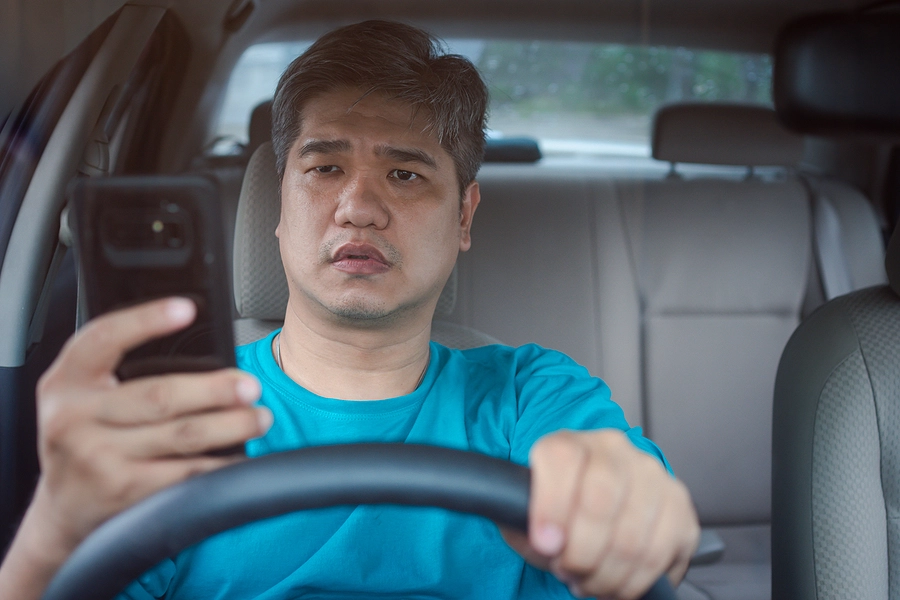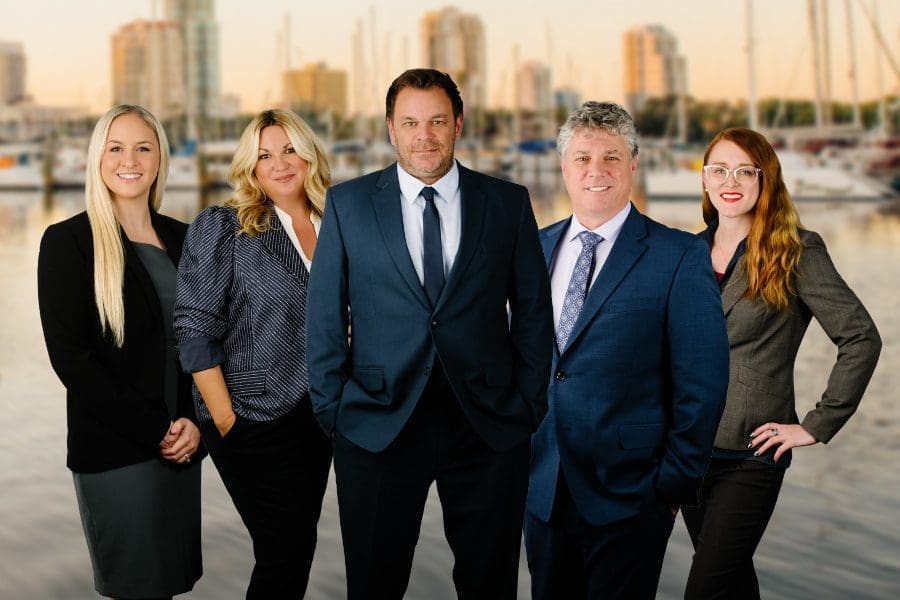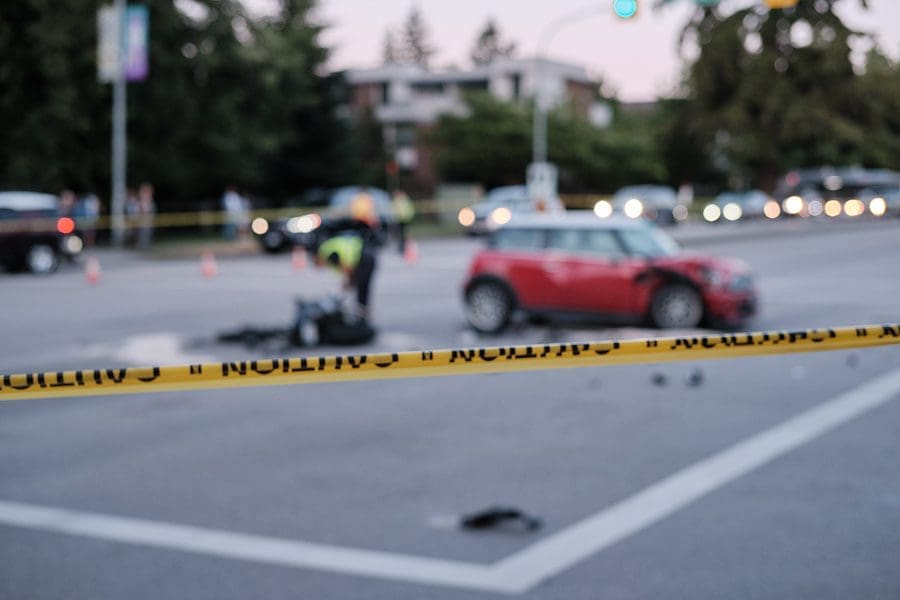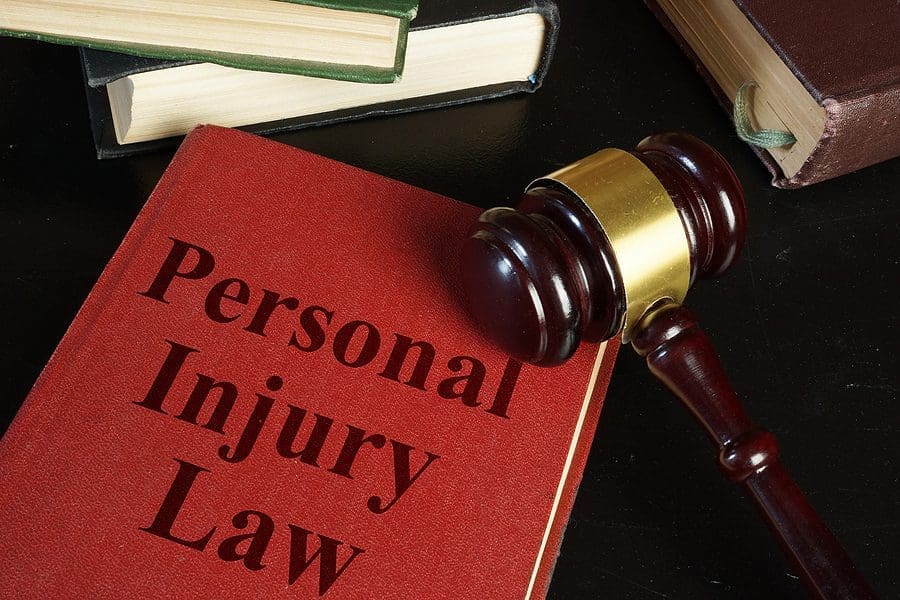JONES LAW GROUPYour Lawyers for Life! Personal Injury Law Firm in St. Petersburg


Blunt force trauma in a car accident can have long-term health consequences, so it’s important to identify and treat these injuries quickly. Summary Experiencing a motor vehicle accident can be a life-altering event, often resulting in various injuries, including blunt force trauma. Recognizing the symptoms of this type of injury is crucial for ensuring timely […]
Call our personal injury law office directly at (727) 512-9847
Find out today! At Jones Law Group in St. Petersburg, FL, we would like to hear from you. Contact us for a free personal injury case consultation.
Or call our personal injury law office at (727) 512-9847
Get educated on the Florida's personal injury laws and more.
Blunt force trauma in a car accident can have long-term health consequences, so it’s important to identify and treat these injuries quickly.
Summary
Experiencing a motor vehicle accident can be a life-altering event, often resulting in various injuries, including blunt force trauma. Recognizing the symptoms of this type of injury is crucial for ensuring timely medical intervention, which can significantly impact recovery outcomes.
Blunt force trauma, caused by the sudden impact during a collision, can lead to serious complications if not promptly addressed. Understanding signs and symptoms of blunt force trauma is essential, as they can sometimes be subtle, delaying necessary treatment.
At Jones Law Group, we emphasize the importance of seeking immediate medical evaluation following an accident, not only to safeguard your health but also to protect your legal rights. Our personal injury lawyers are dedicated to providing guidance and support.
We provide the care and attention auto accident victims deserve in the wake of such traumatic events. Call us at (727) 571-1333 or submit a contact form to schedule a free case evaluation with our team.
Blunt force trauma, which is often termed non-penetrating, occurs when the body experiences injury from impactful forces, falls, or an assault with a non-sharp object.
Unlike penetrating trauma, which involves something breaking through the skin to create an open wound, blunt trauma results from various forces such as deceleration, acceleration, shearing, and crushing pressure.
This type of trauma can be categorized into four main types: lacerations, contusions, abrasions, and fractures. Contusions, commonly known as bruises, happen when small blood vessels burst under the skin.
Abrasions occur when the skin is rubbed off by a rough surface. Lacerations involve the tearing of the skin, creating uneven or jagged wounds, and fractures are typically broken bones, either partial or complete.
Blunt trauma injuries frequently result from car accidents, sports activities, physical confrontations, and falls.
Blunt force trauma from car accidents can manifest through a variety of symptoms, each indicating different levels of injury. Understanding these symptoms is crucial for obtaining timely medical care after a personal injury accident and mitigating potential complications.
Pain is often the most immediate and recognizable symptom following an auto accident. It serves as the body’s natural alarm system, signaling that damage has occurred.
Pain can vary significantly in intensity, from a dull ache to sharp, debilitating agony, and may be localized to a specific area or spread throughout the body. Persistent or severe pain should prompt a visit to a healthcare provider to determine the underlying cause and necessary treatment.
Bruising, or contusion, results from small blood vessels breaking under the skin due to the accdent’s impact. This leads to discoloration, ranging from red to deep purple, often accompanied by tenderness.
While bruises can be minor, extensive or particularly painful bruising might indicate deeper tissue damage or more severe injuries such as fractures or broken bones. Monitoring the progression of bruises is important, as this can provide insight into the healing process.
Swelling occurs as the body’s response to injury, is characterized by fluid accumulation in tissues. It often accompanies other symptoms like pain and bruising and can act as a barrier to movement. Swelling helps protect the injured area but can also indicate underlying issues, such as fractures or internal bleeding.
Applying ice and elevating the affected area can help reduce swelling, but persistent swelling should be evaluated by a healthcare professional.
Cuts and lacerations are common in car accidents, resulting from contact with shattered glass, metal, or other sharp objects. These injuries can range from superficial scrapes to deep gashes that require stitches.
Immediate cleaning and dressing of wounds are crucial to prevent infection. In severe cases, lacerations may also damage underlying structures such as muscles or tendons, necessitating more extensive medical intervention.
Tenderness or stiffness often develops after trauma, as muscles and connective tissues react to the injury. This might make the affected area sensitive to touch and reduce flexibility. Persistent stiffness can impede normal movement and daily activities, leading to discomfort.
Gentle stretching and physical therapy may be recommended to restore range of motion and reduce stiffness over time.
Injuries from blunt force trauma can compromise the functionality of limbs and joints, leading to difficulty or inability to move them. This symptom might stem from pain, swelling, or structural damage such as fractures or dislocations.
Limited mobility warrants a thorough examination, as untreated damage from catastrophic injuries can lead to long-term impairment. Rehabilitation exercises and proper medical treatment can aid in recovery.
Headache, nausea, and vomiting are potential indicators of a traumatic brain injury (TBI), which can occur during a car accident due to sudden impact or jolt.
These symptoms can range from mild to severe and are often accompanied by confusion, dizziness, or loss of consciousness. Immediate medical attention is essential, as TBIs can have serious, lasting effects on cognitive and physical health.
Chest trauma from an accident can cause shortness of breath or noticeable changes in vital signs, such as heart rate and blood pressure. These symptoms may suggest damage to the lungs, ribs, or other internal structures.
Shortness of breath should be treated as a medical emergency, especially if accompanied by chest pain or a feeling of pressure. These blunt force trauma symptoms could indicate life-threatening conditions like pneumothorax or cardiac contusion.
Dizziness is a common symptom following blunt force trauma, often resulting from a disruption in the body’s equilibrium. It can manifest as a sensation of spinning or lightheadedness, making it difficult for individuals to maintain balance or focus.
This symptom might be due to a concussion, inner ear injury, or compromised blood flow to the brain. Persistent dizziness should be evaluated by a medical professional to rule out serious underlying conditions.
Sleep disturbances, including insomnia or restless sleep, frequently occur after experiencing blunt force trauma. This can be attributed to stress, discomfort from injuries, or neurological effects from a head injury.
Difficulty sleeping not only affects recovery but can also exacerbate other symptoms, such as fatigue and irritability. Establishing a calming bedtime routine and seeking medical advice if sleep issues persist can aid in improving sleep quality.
Loss of consciousness, even for a brief period, is a serious symptom that often indicates a concussion or more severe head trauma. This occurs when the brain experiences a significant impact, disrupting its normal function.
It is crucial to seek immediate medical attention if someone loses consciousness after a car accident as this may point to potentially life-threatening complications like intracranial bleeding.
Headaches are a prevalent symptom of blunt force trauma, particularly when the head is involved in the injury. They may range from mild to severe and can persist for hours or days.
Headaches can result from direct impact, muscle tension, or as a sign of a concussion. Over-the-counter pain relief can help manage symptoms, but persistent or worsening headaches warrant a medical evaluation to ensure no serious damage has occurred.
Experiencing a car accident can be overwhelming, but knowing the right steps to take after auto accidents can help ensure your safety and protect your legal rights. In Florida, specific actions are crucial to managing the aftermath of a car accident effectively.
Here’s a guide to navigating the process after a car accident in the Sunshine State.
At Jones Law Group, we are a dedicated personal injury law firm committed to standing by car accident victims every step of the way. Our mission is to help you fight for your rights and secure the justice and compensation you deserve.
If you’ve been involved in a car accident, you need a team with a clear understanding of Florida’s legal landscape and the causes and effects of blunt force trauma. Our seasoned car accident attorneys are ready to provide you with the personalized attention your case needs.
Call us now at (727) 571-1333 or fill out our contact form to schedule a free case evaluation with an experienced Florida personal injury lawyer. Let us be your trusted advocate and guide on the path to recovery.

Proving the at-fault driver acted negligently is critical when pursuing compensation in car accident claims. Summary A car accident caused by another person’s negligence can upend your life in a split second. Beyond the physical pain of injuries, you may find yourself buried under mounting medical bills, vehicle repairs, and the strain of lost income. […]

Finding the best attorney possible will be one of the most important decisions you’ll ever make, whether you were hurt in a truck accident, a motorcycle collision, or in any other fashion due to someone else’s negligence. It’s going to take some effort, and it will also take some time – but in the long […]

Social media is a great way to keep in touch with friends and family, and a big part of life for many people. We can share our thoughts, opinions, photos, and updates about our lives with everyone we know, and it hardly takes any effort. If you have been injured, you may wish to share […]

In 2018, there were approximately 4,985 deaths because of accidents involving motorcycles. In single-vehicle accidents (in which the motorcycle does not collide with another vehicle), two-thirds of accidents are caused by rider error. However, in multiple vehicle accidents, two-thirds of accidents are caused by the other vehicle failing to yield to a motorcyclist or otherwise […]

Nearly 25 million people have to visit emergency rooms in the U.S. each year. A major contributing factor is personal injury accidents. When someone’s negligence causes another to suffer, the victim should be able to obtain the compensation they deserve from the negligent party’s insurance company. But dealing with an insurance claim can be challenging, […]

Whether you’ve been involved in a motorcycle accident, a bicycle accident, or any other kind of accident that happened due to someone else’s carelessness, you’re probably wondering whether or not hiring a personal injury attorney is worth it. At Jones Law Group, we not only believe you should have the help of an experienced lawyer, […]
Speak with us before time runs out! In Florida, you have a limited window to file a personal injury case, so speak to an Attorney today.
Call our personal injury law office directly at (727) 512-9847
Jones Law Group is a dedicated personal injury lawyer in St. Petersburg, FL, serving the Tampa Bay area since 2006. Our experienced attorneys specialize in car accidents, slip and fall cases, employment law disputes, construction law issues, and overtime wage claims, fighting for maximum compensation on a contingency fee basis. Contact us for a free consultation to discuss your case.
Call our personal injury law office at (727) 512-9847
© Copyright 2006–2025 Jones Law Group Attorneys at Law. All rights reserved. Privacy Policy Terms of Use
Attorney Advertising.
The information on this website is for general information purposes only. Nothing on this site should be taken as legal advice for any individual case or situation. This information is not intended to create, and receipt or viewing does not constitute, an attorney-client relationship. Past results do not guarantee similar outcomes.
Are you injured or wronged and interested in a consultation? Fill out the form for a free consultation with us.